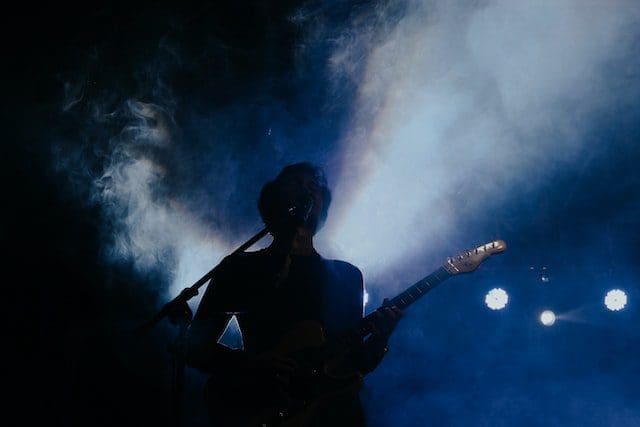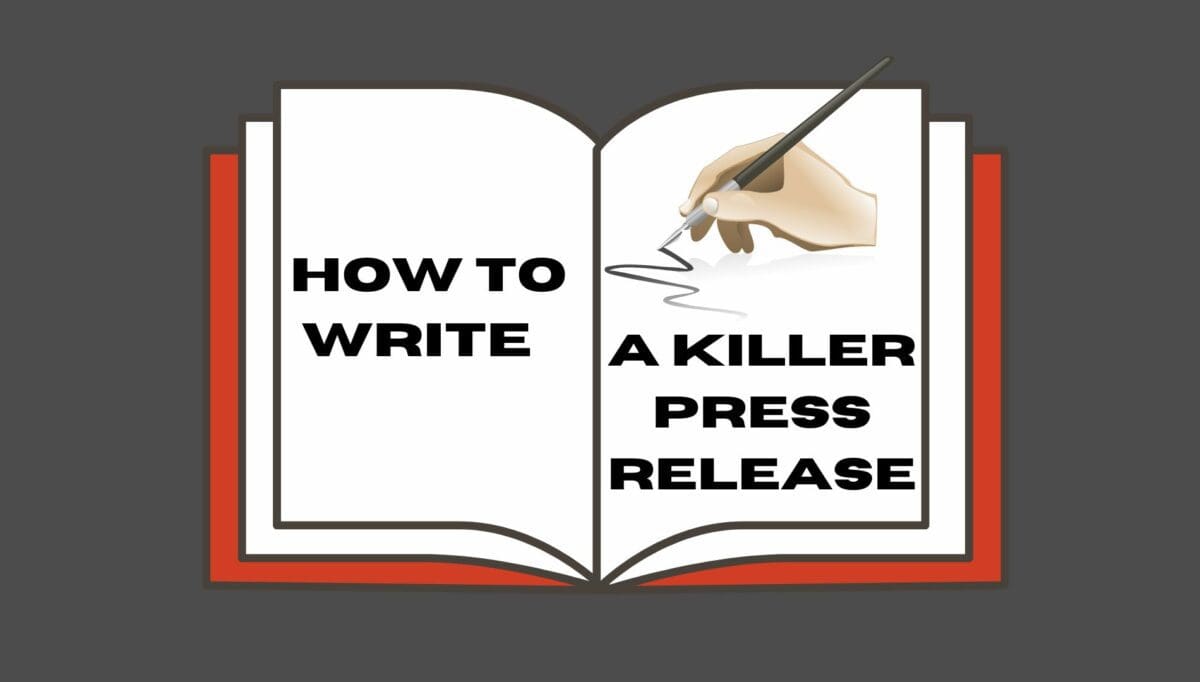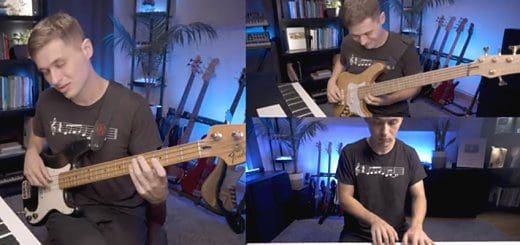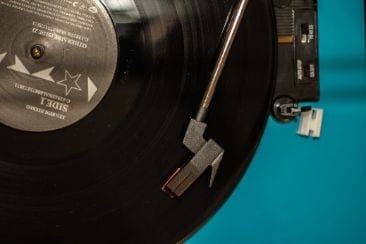Cover songs can help singers to build their audience but it may require licensing in certain situations. However, it is important to know the laws before you start covering other artists.
You need a mechanical license from the original writer or publisher to record and release cover songs. However, musicians don’t need a license to cover a song live, it is the responsibility of the venue.
The content in this article is just a general overview of the topic and should not be considered legal advice.
What is a cover song?

Cover songs or cover versions, are performances or recordings of an existing song by someone other than the original performing artist. You do not need permission to cover a song live. Performances in the UK are upheld by a venue’s PRS license but cover songs will need their own license.
This is done by getting permission from the rightsholder and in the UK, this is through MCPS. Copyright is attributed to the original songwriter whenever a song is written or recorded, provided that there is tangible evidence.
What is a cover song license?
A new recording of an existing song requires a cover song license, referred to as a compulsory mechanical license. This means that the owner of the song’s copyright has an obligation to give you a license. However, this is providing the use of the song falls under a certain set of conditions.
The rights owner of a song has the right to control who makes the first record. It isn’t compulsory to grant a mechanical license when there is no previously recorded version of a song. There also needs to be a public release of the first recording. Therefore, if a song hasn’t been commercially released as a record then you can’t get a compulsory license.
Another condition is that the license is for recording only. This means that the license won’t cover music videos or videos of you performing the cover. You also can’t make any major changes to the lyrics or melody but there is an allowance to make your own interpretations of the performance.
Cover song copyright law in the UK
Is covering a song, without first obtaining a licence, copyright infringement?
Copyright law protects the rights of the original artist, to ensure that they receive due recognition and payment for their creative property.
Songs are protected by two separate types of copyright: one for the specific recording, and another which protects the underlying lyrics and musical composition. These two licences might be held by different people or organisations, even for the same song.
The copyright for a particular recording is held by the producer of that sound recording (probably a record label), whereas the rights to the underlying song will be in the hands of the songwriter, or their publisher.
How to get permission to cover a song and release it
The explosion of social media networks and music publishing platforms such as SoundCloud and YouTube has led to an increase in licensing requests, and singers seeking permission to cover songs they plan on releasing.
And there’s a good reason why; some very large artists gained popularity and exposure by first publishing cover versions to get discovered.
However, whilst covering a song and uploading it is the simple part, it can lead to legal complications if you then decide to release and make money from the track.
If you are considering legally recording another artist’s song, here are some steps you should think about first.
- Get the licenses which let you record and release the original composition.
- Get an International Standard Recording Code (ISRC) to distinguish your cover version from anybody else’s. You can also search for a song’s ISRC Code using the Music Gateway ISRC Finder Tool.
- Make sure you are set up to receive performance royalties.
When do you need to obtain a licence?
So, do you need a licence to do cover songs? How you intend to use another musician’s track will dictate whether or not you need a licence and, if you do, what type of licence you need to obtain before you can legitimately cover the song.
In the remainder of this article, we will look at the varying uses of cover songs and how copyright law applies to them.
Where can I get a license to record a cover song?
There are two cover song licensing services which let you apply for a license to record a cover song. Visit the following websites for more information:
- Songfile: This cover song licensing service offers mechanical licensing information and tools. Using this service will cost $16 per track.
- Music Gateway: As well as purchasing cover song licensing, you can distribute your covers through the MG distribution service with full royalties to you and the original songwriter.
How much does it cost?
It costs nothing to cover a song when singing it live.
However, it will cost if you plan on recording the cover version and then offering it for sale on a download website or as part of a physical CD or album product.
On the Songfile website, they say the current cost for a mechanical license (e.g recording a cover song) is 9.1 cents per track. That means if you were to then sell 1,000 CDs with the cover song on it, it would cost you $91.
Do you have to pay royalties to cover a song?
Not always. Some original copyright owners are happy to see their songs covered and uploaded to YouTube by new artists. It can help increase the exposure of the original artist’s music.
However, some copyright owners object to unlicensed covers. If you only plan on covering the song live at a gig, you won’t have any legal concerns. We’ve gone into this in more detail in our article on covering songs at an open mic night and discuss this matter further down in this guide.
It’s when you record and publish the song that licensing issues can arise.
Scroll down to find out more about paying royalties if you plan on distributing it or uploading it to social media channels.
Live performances of cover songs in the UK
Using a cover song in a live performance requires the least licencing procedure because a live performance is not technically a publication. As a musician, you normally won’t need to acquire a licence before you do a live performance of a cover song.
It is the responsibility of the venue, where your performance will take place, to ensure that they have TheMusicLicence set up in advance; this is a single licence covering them for public performances of almost all copyrighted music.
You don’t need to obtain a licence to perform a cover song in music competitions such as Open Mic UK and TeenStar. Instead, it is the responsibility of the venue to make sure that any necessary licences are in place.
The Music Licences are controlled and obtained from PPL and PRS for Music, who collect and distribute royalties to the rightful copyright owners.
The Mechanical Licence: recording and distributing physical copies
In the UK, a mechanical licence is required in order for you to record and distribute physical copies of your cover song. For example, selling CDs, as well as digital downloads.
Almost all copyrighted music in the UK will be registered with PRS for Music. This is where you need to go to acquire the mechanical licence for a song. In most audio-only cases (the production of CDs, vinyl etcetera) an AP1 or AP2 mechanical licence will be sufficient.
If the song is not on the PRS for Music database, this does not mean that it isn’t protected by UK copyright law. Instead, you’ll need to seek permission and make arrangements with the original writer or their publisher — depending on who is in possession of the rights.
Find information about mechanical licencing here: PRS for Music: Retail Audio Products
Can you publish cover songs on streaming websites?
Distributing recordings of cover songs on sound-only streaming platforms, like Spotify and iTunes will also require a mechanical licence.
In order to use these platforms, you agree to comply with their terms and conditions policy. These policies directly forbid the violation of copyright law. Failing to meet these standards could result in your account could be permanently terminated.
Posting cover songs on YouTube and Facebook
Can I upload them to YouTube?
Quick answer: You can, but there are some risks to posting cover songs on YouTube.
Many artists don’t know that sharing a video of a cover song on YouTube, without proper licensing, is in breach of UK copyright law. Previously, this could cause your video to be taken-down and repeat offenders risked losing their account altogether.
However, YouTube has recently changed how they operate. By law, YouTube cannot give you the rights to publish covers of copyrighted songs on their platform. This is always down to the copyright holder(s).
Therefore, to find a solution to this, YouTube has made arrangements to compensate the copyright holders and now implements a ‘Content ID system‘ that searches for and recognises videos which contain audio similar to known copyrighted material. For more information, see: How YouTube Content ID Works.
This allows the owner of the copyright to make a judgement based on the content of the new video. In many cases, the copyright holder will choose to place adverts on the YouTube video and collect the associated revenue. That said, the copyright holder could choose to mute or even take down the video — though this is rarer in recent years.
This should not be confused with using actual samples of copyrighted music in your videos. Sampling is a completely separate copyright matter.
Can I upload cover songs to Facebook?
Quick answer: Don’t post them on Facebook!
Uploading video cover songs on Facebook (directly), without the necessary licences (both mechanical and synchronisation), is in breach of their terms and conditions. Therefore, posting cover songs on Facebook could cause your video to be removed and you may risk losing your Facebook page. To date, Facebook does not have a way to compensate the copyright holder(s). As a result, uploading them to Facebook direct to their platform is not tolerated.
Facebook favours videos uploaded to their own platform. Videos that are uploaded directly appear to gain more exposure compared to videos embedded from other platforms. However, it is safer to embed the YouTube video on Facebook rather than posting the video of the track on Facebook directly. This is provided you have already declared the video as a YouTube cover song through the Content ID system.
How long does music copyright last in the UK?
Music in the public domain
If you’re lucky, the song you wish to cover will exist in the Public Domain, and therefore, you won’t require a licence to use it. This applies to all songs published before 1922, as well as songs whose writer died more than seventy years ago (although, this rule only applies to music written since 1989).
Always double-check if you suspect the song you wish to use is in the public domain; you need to establish who created the work, and when they died. Bear in mind a song might have more than one creator, and it will only enter the public domain seventy years after the death of the last original creator.
How to legally cover a song in the UK
Recreating an existing song in your own style can be great fun and a rewarding career move. However, you always should comply with the proper UK cover song licencing procedure.
While live performances of cover songs are the responsibility of the venue and YouTube cover songs will likely be sorted by their Content ID system (see above: Can I upload cover songs on YouTube?), most other uses of copyrighted music (such as the use of a cover song on an album) will require a bit more legwork and, to be on the safe side, you should get your licences in place before you start working with any cover material to save yourself the stress of your hard-work being thwarted by music copyright complications later on.
If you intend to use copyrighted material as an audio-recording only: CD or digital stream, you’ll need a mechanical licence. However, if you wish to use copyrighted songs in a video, a synchronisation licence is necessary. Cover song licences for the vast majority of music in the UK can be obtained from PRS for Music — and their affiliated organisations — who ensure that original creators receive the royalties.










